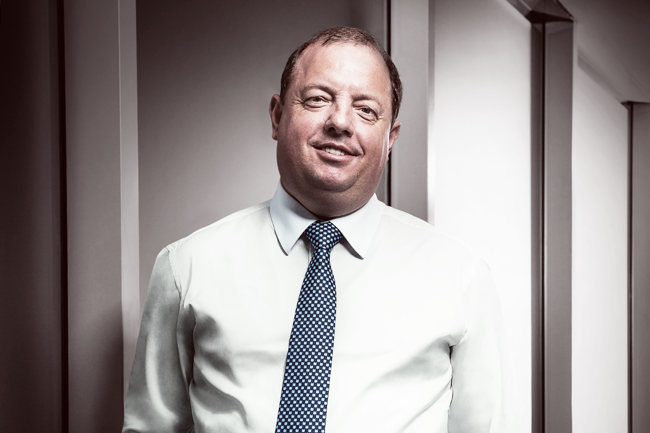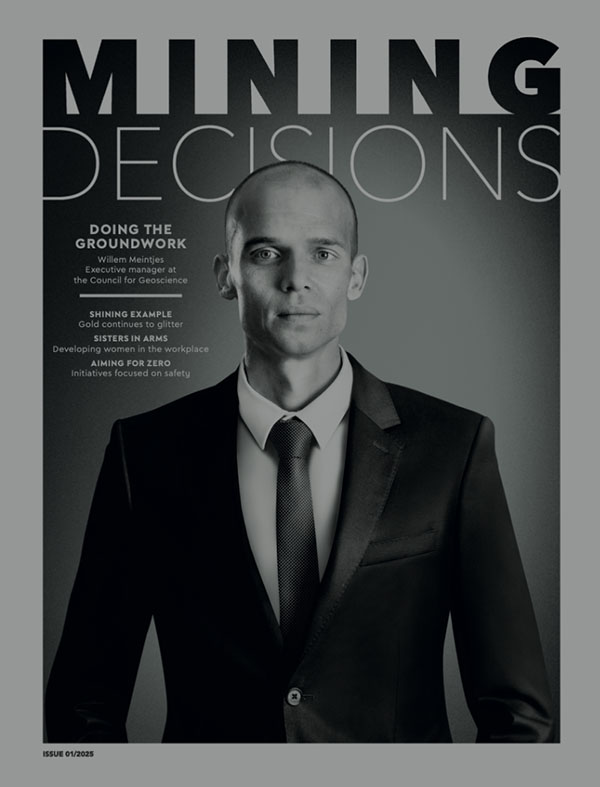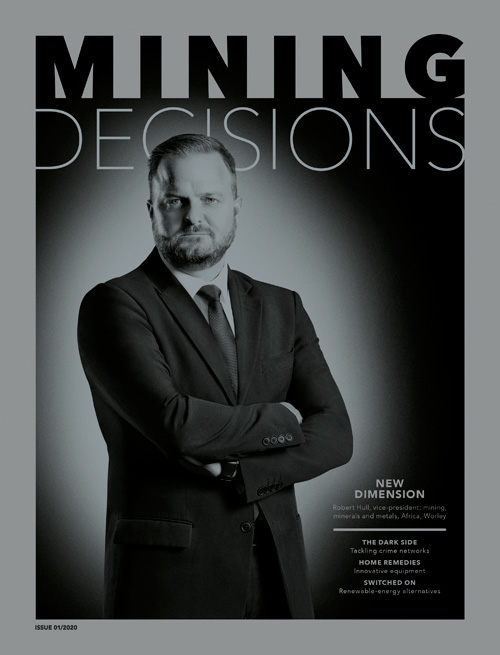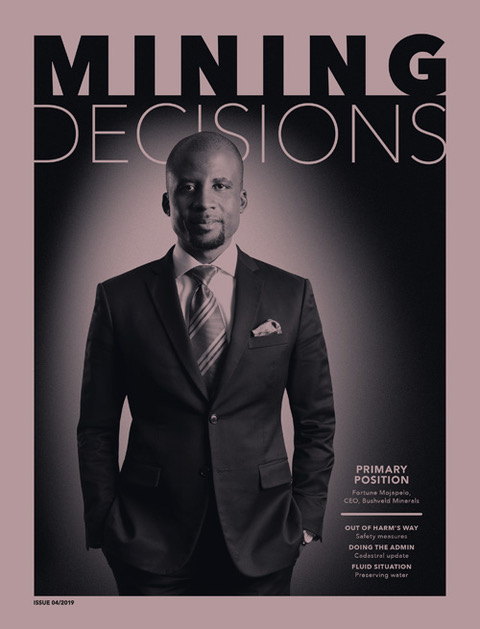At the end of 2014, the Mota-Engil Africa Group signed off – with its client, Vale – on the Nacala railway corridor project in Malawi. Worth US$1 billion, it was one of those rare exceptional project closures, for not only was it completed on time and within budget, but at the highest level of quality that clients have come to expect from the civil engineering and infrastructure development company, which has operated on the continent for the past 68 years.
The Nacala corridor is one of those imperative links to intra-trade. It co-joins the Moatize coal mine in Tete Province, Mozambique via Malawi to Nacala Port, covering a distance of 906 km. ‘The project employed over 3 000 people at its peak, 1 000 machines and almost beyond measurable amounts of steel and aggregate,’ says Gilberto Rodrigues, CEO of Mota-Engil Africa.
‘In many respects, the Nacala corridor can be considered a flagship project for the company but given Africa’s huge need for infrastructure, the rate that the continent is developing, and the negotiations that we are constantly engaged in, that status could change in the future.’
The Portuguese Mota-Engil footprint is comprehensive in Africa, and with nine branch offices sited in Cape Verde, Ghana, Malawi, Mozambique, Rwanda, São Tomé and Príncipe, Uganda, Zimbabwe and Zambia, the company has most of the continent covered.
Two headquarters branches (based in Angola and South Africa), along with the Portuguese group head office, have developed notably strong partnerships across Africa.
‘We have a genuine passion to see the continent develop, and I believe our seven decades in business here prove that’
In Angola, for instance, the local partnership owns 40%. ‘We do, however, have pretty much full control of operations, particularly those in a branch position,’ says Rodrigues.
The country is considered a strong base for the group, having already completed projects that include Financial City, Atlantic Towers and the 4th of April bridge, the rehabilitation of Luanda Bay and Calueque dam, the roads Saurimo-Muconda, Dundo-Lucapa and Xaua Catata, as well as Luanda Airport and the Cabinda Air Terminal.
Mozambique has also benefited from Mota-Engil’s expertise on its Olympic village for the Pan-African Games, the Zambezi roads concession, the Tete bridge, Armando Emilio Guebuza bridge, Sena railway line, and roads Milange-Mocuba and Chimoio-Espungabera.
Rodrigues hints that the company is currently in discussions with the Ugandan government, stakeholders and investors about the possibility of Mota-Engil’s involvement in a dam project, which is in line with the company’s focus on energy.
The diversification from its traditional yet continued emphasis on civil engineering means that all of Mota-Engil’s other strategic focus groups are enhanced given that energy is a crucial component of supporting civil engineering, transport, logistics, mining and the oil and gas sectors.
The latter two industries are proving particularly challenging in the current climate. ‘It is always stressful in the mining world. Yet this is something Mota-Engil thrives on,’ says Rodrigues.
‘We have proven many times that we are fully capable of providing services, as we are currently doing on big projects in Angola, Zimbabwe, Mozambique, South Africa and Botswana – Malawi too, where feasibility studies show the presence of base metals, heavy sands and rare-earth metals.
‘We understand market strain; how OPEC decisions impact on African mining companies. Currently, the continent’s mining industry is struggling with how to remain profitable under difficult economic conditions, continue to build capacity and maintain the value of assets.
‘There are a huge number of plants and resources that need deployment – and maintenance – within a mining environment requiring consistent efficiency in execution, and this is what Mota-Engil is more than capable of providing, especially in aiding to secure profitability,’ says Rodrigues.
‘It does, however, make for very interesting times, because there is no one single formula that can be applied to nation nor project, and this is also true for the oil and gas sector.’
Rodrigues says that although the price of oil is currently dramatically low, oil producers realise that they need to continue to maintain their facilities and find solutions to keep on producing more affordably.
‘There is pressure on all the big traders, with national budgets also compromised. When there is less confidence, less investment and more risk, mining activities are reduced and this compromises not just the nations’ GDP, but puts the entire mining operation in jeopardy, let alone individual employees’ futures.’
All economies experience moments of high and low growth, so this is not the first time that Mota-Engil has had to find ways to navigate the sometimes murky waters of economics and competition.
Rodrigues explains that to deal with forces beyond control means finding and securing strong partnerships that understand differing nations’ protocols and procedures when auctioning a project.
‘There are two levels of obligation, the first being the integration of culture between partnerships. This requires a deep understanding of even the society within which we operate.
‘The second is the contractual side, yet despite how different even neighbouring countries may be, tender documents are usually standard and informational. Regulations need to be abided by and contracts must be governed, so there is a kind of umbrella protection in what we do.’
For Mota-Engil, one of the key aspects to its success – be that in tendering, project management or ensuring regulatory procedures are followed – is the employment of the highest quality of staff, which the group has in abundance.
‘When you have very experienced teams, there is a reduced margin of risk,’ says Rodrigues. That risk has resulted in Mota-Engil’s high record of accident-free hours, safety being of paramount importance to the group.
Sustainability is also a huge part of the employee and contractor commitment to Mota-Engil. Rodrigues refers to ‘the art of sustainability’, which he says means that ‘profound transformation can only occur if what you do today can be taken over by others tomorrow’.
‘Profound transformation can only occur if what you do today can be taken over by others tomorrow’
The company devotes itself to ensuring it delivers an agenda for sustainability in Africa and has a heightened awareness of social responsibility towards individuals and communities, particularly in encouraging individual career development.
This type of attention is somewhat similar to what the company also applies with its environmental policy. All big projects have a strong environmental focus, with controlled financing and the implementation of the highest-possible standards, with the least amount of harm to surrounding land.
‘The strong world focus on climate change and the environment includes Africa. We are not isolated from decisions taken at COP meetings for example,’ says Rodrigues.
‘Environmental contractual obligations tolerate no contravention, given that these are usually linked to government policies. A company also needs to be aware of the trends that develop in the rest of the world – and communicate those to the clients so that standards can be of the highest level possible.’
According to Rodrigues, Africa remains highly competitive. ‘The Chinese maintain a strong presence, particularly in the mining sector, with Turkish and Brazilian companies now entering the market. Although South African businesses are moving into Africa, they are doing so slowly.’
Competition does not appear to worry Rodrigues. After all, in 2014 Mota-Engil Africa listed on the Amsterdam Stock Exchange with plans to double business capacity over a five-year period. In so doing, there is one aspect that the group will not compromise on, and that is its commitment to Africa.
‘We have a genuine passion to see the continent develop, and I believe our seven decades in business here prove that.’






